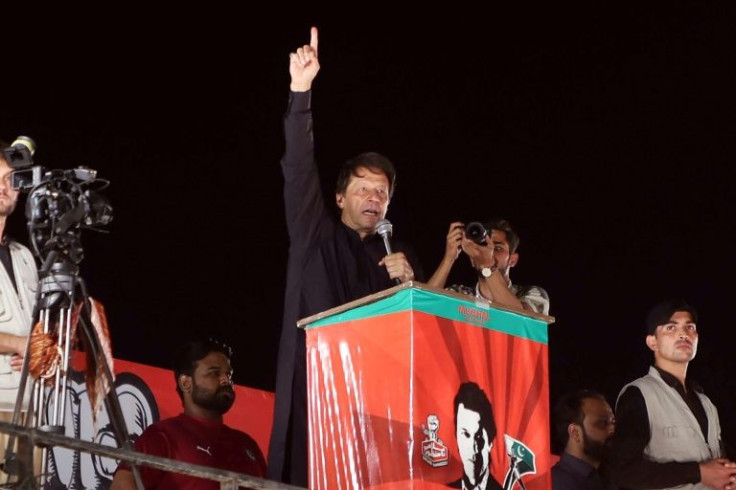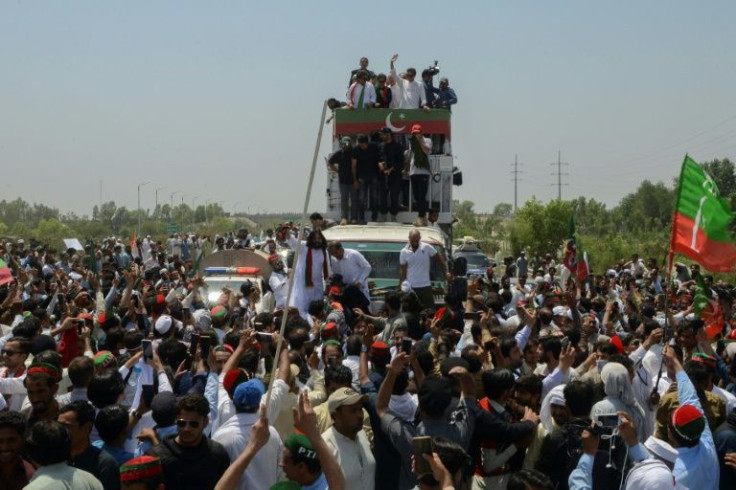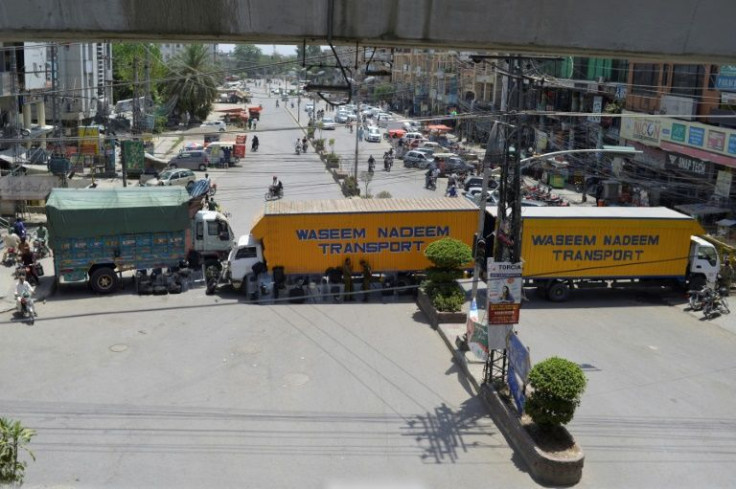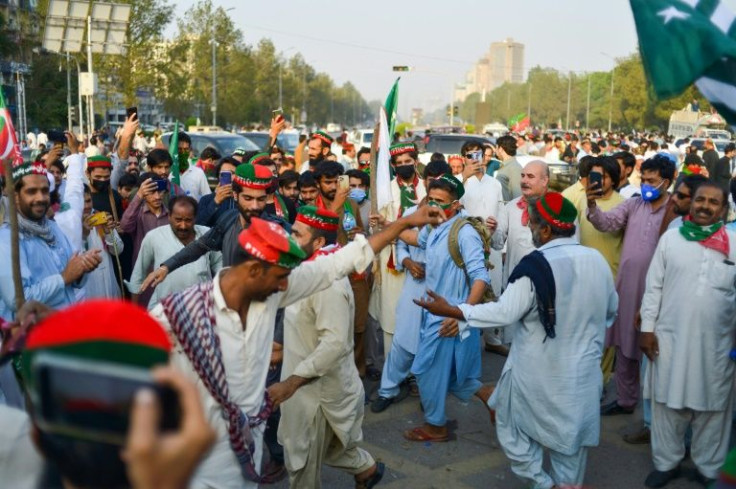Pakistan's Ex-PM Khan Issues Ultimatum On Elections After Mass Rally
Pakistan's ousted prime minister Imran Khan on Thursday warned the government to stage fresh elections or face more mass protests, after leading thousands of supporters to the capital Islamabad in a showdown with his political rivals.
His morning address was the culmination of a chaotic 24 hours which saw the capital blockaded and clashes break out between police and protesters across the country.
The government had attempted to prevent the convoy from reaching the capital by shutting down all entry and exit points around the city, but was forced to allow in protesters by an emergency Supreme Court order.

Since being removed from power through a no-confidence vote last month, cricket star turned politician Khan has heaped pressure on the country's fragile new coalition rulers by staging rallies, touting a claim he was ousted from office in a "foreign conspiracy".
"I want to give a message to this imported government to announce elections within six days. Dissolve the assemblies and call an election in June," he said to a crowd of thousands who later dispersed.
He warned that he would return to the capital with his supporters next week if elections were not scheduled.
"We will not accept his dictation," prime minister Shehbaz Sharif told parliament on Thursday afternoon. "When elections are to be held, it will be decided by this house."

"If he thinks he will blackmail us, he is mistaken."
Thousands of supporters of Khan's Pakistan Tehreek-e-Insaf (PTI) party heeded his call to march to the capital from nearby cities on Wednesday.
But political analysts said Khan's attempt to stage a historic sit-in was a failure, with smaller numbers than expected hobbling his bargaining power.
"With around 30,000 people, it was not a good idea to stay in Islamabad and face the powerful police that broke his momentum," said Qamar Cheema.

Confrontations erupted between police and protesters who attempted to remove roadblocks on key highways to join the convoy.
Police repeatedly deployed tear gas to disperse crowds in the capital, as well as in the cities of Lahore, Rawalpindi and Karachi.

The Human Rights Commission of Pakistan said it was "deeply concerned by the highhandedness of law enforcement agencies" in disrupting the march.
"The state's overreaction has triggered, more than it has prevented, violence on the streets," it tweeted.
The government had pledged to stop the protesters from entering the capital, calling the rally an attempt to "divide the nation and promote chaos".
But as unrest was breaking out around the country, the Supreme Court granted permission for PTI to stage its rally on the edge of the city.
The court also ordered the government to release PTI supporters detained by police.
More than 1,700 people have been arrested since police began raiding the homes of PTI supporters on Monday night, said Interior Minister Rana Sanaullah, who previously accused protesters of planning to carry weapons.
Khan joined the march in dramatic fashion, arriving in a helicopter that touched down on a motorway clogged with supporters in his power base of Khyber Pakhtunkhwa province.
While some supporters were left disappointed by the curtailed sit-in, many were prepared to follow their leader.
"Whatever decision he takes we just obey it," said Muhammad Uzair, a 29-year-old clothes shop assistant. "We are ready to come back after six days."
The international sporting hero came to power in 2018, voted in by an electorate weary of the dynastic politics of the country's two major parties and enjoying the backing of the nation's powerful military.
Promising to sweep away decades of entrenched corruption and cronyism, he is believed to have fallen out with Pakistan's generals.
He was brought down by opposition parties in part by his failure to rectify the country's dire economic situation, including its crippling debt, shrinking foreign currency reserves and soaring inflation.
© Copyright AFP {{Year}}. All rights reserved.




















